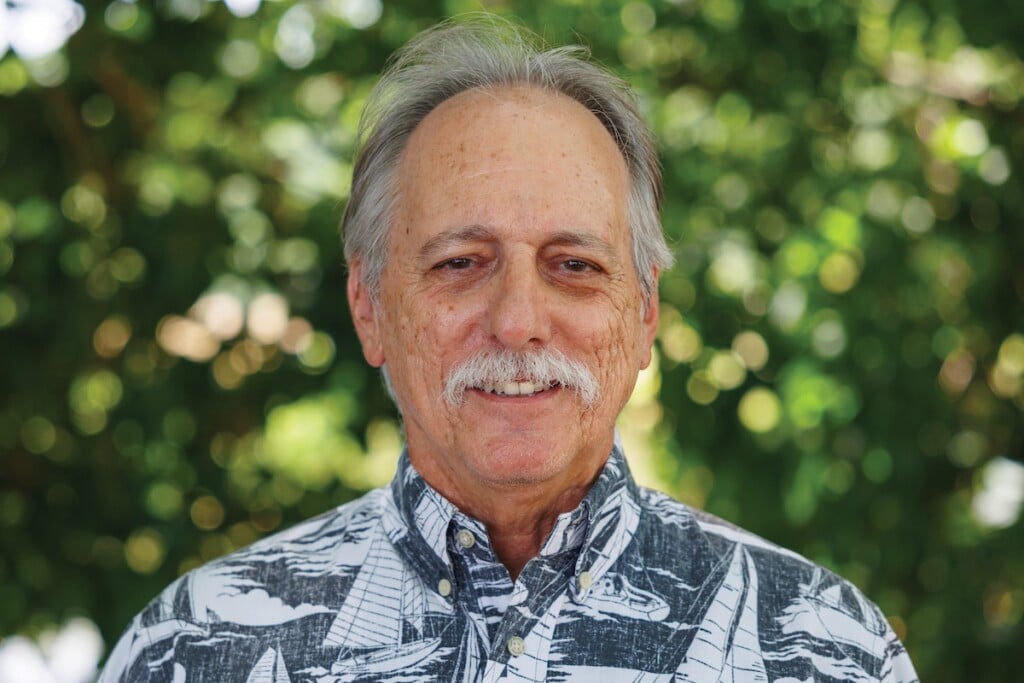On Patrol, With the Retired Deputy Chief of Police
Honolulu former deputy chief of police John McCarthy describes the stresses, and rewards, of police work in Hawai`i. Some days, "it's zero to 60" with a single call.

Day to day on the job
Movies and TV shows about cops emphasize the high-stakes drama of police work: murder investigations, gang busts, armed robberies. But that’s only part of the job.
“When I was a patrol officer, I’d be doing one thing, eating lunch or relaxing, and the next minute a call comes in and it’s zero to 60,” says John McCarthy, a former Honolulu deputy chief of police. “There’s been many medical studies on police officers working at that high intensity all the time. It’s known to cause a lot of PTSD and anxiety disorders in individuals. Many officers will just constantly be on high alert waiting for a terrible call to come in.”
McCarthy retired as deputy chief of HPD in 2021 after 45 years of service.
Traumatic experience
“One of the most shocking cases I’ve dealt with was when I was working the midnight watch, just about to get off and I get a call about a suicide in the park,” McCarthy recalls.
“I got to the public park and … the sun was just coming up, I was kind of blurry-eyed from working all night. It was pretty slow before this. I get to the scene and it’s this young man hanging from a tree, mouth open, and there’s flies coming out of his mouth, so I knew he’d been there awhile. Situations like that stick with me. Again, you think the shift is going one way and then it ends with me doing a DOA for this young man.”
Recruiting difficulties
Long hours, emotional strain, constant paperwork and other dark sides of the job help explain why fewer people enter the profession today and so many police departments are understaffed. Four of the largest metropolitan police departments were collectively down over 5,400 officers during 2022 and 2023, the FBI Law Enforcement Bulletin reports. “Further, law enforcement is experiencing a drastic decrease in the number of recruits – 27% to 60%, depending on the area.”
What it takes to recruit
Police work requires mental strength and the ability to stay calm under pressure. To attract more recruits, McCarthy says, police departments need to offer more than just a good paycheck.
“Other compensation such as better retirement benefits and medical insurance for spouses after retirement are two of the benefits once provided that have since been taken away,” McCarthy says. “Making the perks long term might make it more attractive. Otherwise, compensation alone hasn’t worked.”
Officers put themselves in danger daily, so long-term support and security for their families in case the worst happens can be just as important as the salary, he says.
High-stakes decisions
Police officers must be both physically and mentally resilient – or face permanent psychological scars, McCarthy says.
“Either you deal with things, such as the first shooting I was involved in, my first gun case, the first case where I had to use force. You don’t stand there and think, ‘OK what was I taught in recruit class? What’s the force continuum? What level of force can I use?’ You either react or you don’t react. That’s been my experience. You can’t let these things bother you or eat at you because it’ll be the downfall of you.”
He suggests it’s difficult for most people to understand how police officers deal with these high-stake situations because they never experience anything similar.
Women on the force
Many more women serve on police forces in Hawai‘i and nationwide than a generation ago. Could they be the answer to staff shortages?
“I’m not sure how to attract more women when they can’t even attract more men. The job has lost its glamour. The short and contentious term of Chief (Susan) Ballard may make it harder to recruit and retain women,” McCarthy says. He suggests recruiters could concentrate “in areas where younger females are active in job searches” or places such as schools where they’re already looking at life in the long term.






